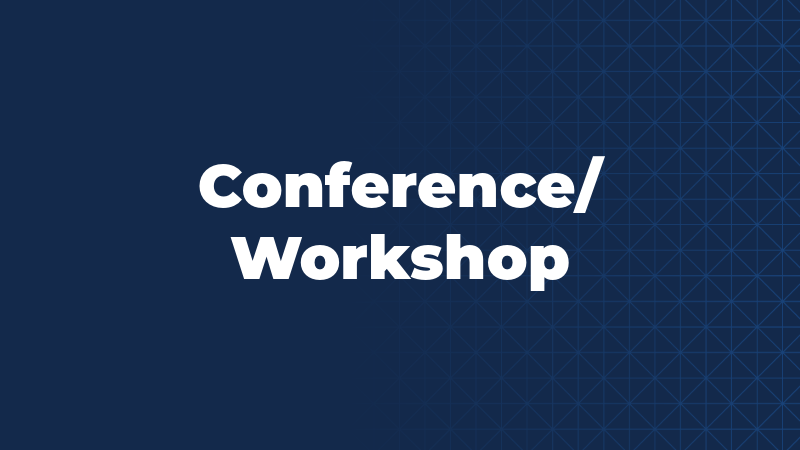
- Sponsor
- Institute for Sustainability, Energy, and Environment (iSEE)
- Registration
- Registration
- Contact
- Tony Mancuso
- tmancuso@illinois.edu
- Views
- 68
The 2023 iSEE Congress will address the challenges associated with globally interconnected systems — and the need for partnerships and coordination to tackle planetary-scale challenges including infectious disease emergence, biodiversity loss, and climate change.
As evidenced by regional and global pandemics, environmental and public health crises can cross political boundaries and affect many different economic sectors. Yet responses to this crisis have varied enormously among nations and with only limited coordination. In the absence of global coordination, responses to environmental and public health crises can be reactionary and with nations acting in their own self-interest. Emerging infectious diseases, biodiversity loss, and climate change are among the most critical, planetary-scale challenges facing humanity in the 21st century. The focus must shift from unilateral approaches to coordinating among diverse stakeholders in addressing complex problems.
iSEE Congress 2023 will highlight how interdisciplinary collaborations can help tackle the enormous challenge of coordinating global responses to crises of planetary scale. By bringing together experts from multiple disciplines, the symposium will foster further collaborations and provide a public platform for the community to engage in pressing concerns.
This year’s Congress has received funding support from the Center for Global Studies’ U.S. Department of Education Title VI Natural Resource Center Grant in Global Studies.
There will be four panel discussions for this event
8:20-9:55 a.m. — Panel 1: "Disasters"
Identifying the relationships between climate and global disasters is the first step to seeking pathways toward solutions. Based on this foundation, can we look ahead and identify new types of looming disasters? How is the recent COVID-19 pandemic influenced by changing climates? What are some of the causes associated with other recent disasters? Are there key lessons from recent events we can bring forward? Are there leading solutions?
This panel will be moderated by Ryan Driver, Associate Professor of Atmospheric Sciences at the University of Illinois Urbana-Champaign. The featured speakers for this panel are Jeffrey Shaman, Professor of Environmental Health Sciences at Columbia University; Alex Richard Cook, Vice Dean and Associate Professor of Public Health at the National University of Singapore; and Pamela P. Martinez, Assistant Professor of Microbiology at the University of Illinois Urbana-Champaign.
10:30-noon — Panel 2: "Land Use and Landscape Change"
Changing land uses and landscapes can highlight the risks imposed by highly interconnected systems. Some changes may put people at risk for disease, others may entail greater environmental risks associated with long-term degradation. What new trends are currently being observed? What new relationships have been revealed by recent events? Are there key lessons that we can bring forward into related scenarios?
This panel will be moderated by Yvette Joyce Johnson-Walker, Clinical Instructor of Veterinary Clinical Medicine at the University of Illinois Urbana-Champaign. The featured speakers for this panel are Kevin Olival, Vice President for Research at EcoHealth Alliance; Will Sander, Assistant Professor of Preventive Medicine and Public Health at the College of Veterinary Medicine, University of Illinois Urbana-Champaign; and Trent Ford, Illinois State Climatologist.
Noon-1:30 p.m. — Luncheon Keynote
Aileen Marty, Professor of Translational Medicine for the Division of Internal Medicine at Florida International University will be featured as this event's keynote speaker.
1:30-3 p.m. — Panel 3: "Equity"
The negative effects associated with climate change are not equally experienced by all human populations. What are some of the most pressing injustices we have observed? How are we contributing to these injustices? What are the public health related implications of these stressors? Are their key lessons we might bring forward to other scenarios?
This panel will be moderated by Japhia Hannah Jayasingh Ramkumar, Clinical Associate Professor at Carle Illinois College of Medicine at the University of Illinois Urbana-Champaign. The featured speakers for this panel are Ashish Sharma, Climate and Urban Sustainability Lead at the Discovery Partners Institute, Argonne National Laboratory, and Adjunct Professor of Atmospheric Sciences at the University of Illinois Urbana-Champaign; Deanna Hence, Assistant Professor of Atmospheric Sciences at the University of Illinois Urbana-Champaign; and Amy Ando, Professor of Agricultural and Consumer Economics at University of Illinois Urbana-Champaign.
3:30-5 p.m. — Panel 4: "Infrastructure"
There is no greater change to our landscapes than those surrounding our urban infrastructures. Economies of scale provide efficiencies in urban regions, but the relative separation from primary production decreases our awareness of remote responsibilities and liabilities. Are there new approaches to urban and regional planning or new forms of urban infrastructures that provide promising solutions? What factors surrounding urban systems are emblematic of failures to serve underrepresented populations? What are public health related implications associated with urban infrastructures or policies?
This panel will be moderated by Paolo Gardoni, Alfredo H. And Family Professor and Excellence Faculty Scholar in Civil & Environmental Engineering at the University of Illinois Urbana-Champaign. The featured speakers for this panel are Jessica F. Brinkworth, Assistant Professor of Anthropology at the University of Illinois Urbana-Champaign; Thanh Huong Nguyen, Ivan Racheff Professor of Environmental Engineering at the University of Illinois Urbana-Champaign; and Sybil Derrible, Associate Professor of Civil, Materials, and Environmental Engineering at University of Illinois Chicago.